In a world where every business is racing to the cloud, cloud SDKs are the secret sauce that can take your app from zero to hero. Imagine having a toolkit that not only simplifies your development process but also makes you look like a coding wizard. With cloud SDKs, developers can harness the power of cloud services without needing to decipher hieroglyphics or sacrifice their sanity.
Table of Contents
ToggleOverview of Cloud SDKs
Cloud SDKs, or Software Development Kits, play a crucial role in modern application development. These toolkits simplify the integration of various cloud services within applications. By providing libraries, APIs, and documentation, cloud SDKs streamline the development process, allowing developers to focus on creating efficient solutions instead of dealing with complex configurations.
Developers benefit from cloud SDKs in multiple ways. They reduce the time spent writing code by offering pre-built functions and samples. Enhanced communication with cloud platforms occurs through SDKs, allowing seamless interaction with services such as data storage or machine learning capabilities. Additionally, developers find it easier to implement best practices for security and scalability using these tools.
Major cloud providers, including Google Cloud, AWS, and Microsoft Azure, offer robust SDKs tailored to their ecosystems. Each SDK includes features specific to the provider, ensuring optimal performance and compatibility. For instance, Google Cloud SDK supports resource management and execution of commands across various Google services. In contrast, AWS SDK offers direct integrations with its expansive suite of cloud solutions.
Real-world applications exemplify the advantages of utilizing cloud SDKs. Many organizations leverage SDKs to develop mobile applications that connect to backend cloud services. Others utilize them for creating data analytics platforms that process large datasets efficiently. With cloud SDKs, developers can quickly adapt to changing technologies and demand in the market.
Using cloud SDKs not only enhances productivity but also fosters innovation. They enable the integration of advanced technologies into solutions without extensive groundwork. Subsequent updates from cloud providers often introduce new features, ensuring that developers can maintain cutting-edge applications.
Benefits of Using Cloud SDKs
Cloud SDKs provide a range of advantages for developers, streamlining various aspects of the development process. These toolkits facilitate seamless integration with cloud services, enhancing overall efficiency.
Simplified Development Process
Developers experience a more straightforward development process with cloud SDKs. Pre-built functions and libraries save significant coding time, allowing them to concentrate on core application features. Common tasks become manageable, as SDKs eliminate the need for complex configurations. Accessing extensive documentation supports rapid learning and implementation. Developers also benefit from built-in tools that simplify debugging and testing. As a result, teams can deliver high-quality applications faster, improving their competitive edge.
Enhanced Integration Capabilities
Integrating cloud services becomes effortless with cloud SDKs. Each SDK provides tailored APIs specifically designed for easy communication between applications and cloud platforms. Frequent updates ensure compatibility with the latest features of cloud services. Cloud SDKs also support multiple programming languages, catering to diverse development environments. By simplifying the integration of third-party services, developers can enhance functionality without extensive custom code. This capability fosters innovation and enables teams to leverage cutting-edge technologies effectively.
Popular Cloud SDKs
Cloud SDKs offer robust tools for developers, simplifying integration with various cloud services. Leading providers like AWS, Google Cloud, and Microsoft Azure each supply unique SDKs tailored to their ecosystems.
AWS SDK
AWS SDK serves a wide range of programming languages, including Java, Python, and JavaScript. It streamlines tasks such as accessing AWS services, allowing developers to focus on building applications. The SDK includes extensive documentation and pre-built functions that accelerate development. Seamless integration with AWS services like S3 and DynamoDB ensures optimal performance. Additionally, built-in tools for security and monitoring enhance application reliability.
Google Cloud SDK
Google Cloud SDK provides versatile command-line tools and libraries for developers working with Google Cloud services. It supports languages like Go, Java, and Python, enabling straightforward service access. Features such as automatic authentication and integrated debugging tools improve developer productivity. The SDK facilitates easy implementation of services like BigQuery and App Engine, making complex data processing tasks manageable. Regular updates ensure developers benefit from the latest features and security improvements.
Microsoft Azure SDK
Microsoft Azure SDK includes client libraries and tools that expedite the development of Azure-based applications. It supports key languages such as .NET, Java, and Python, providing flexibility for various projects. This SDK simplifies interactions with Azure services like Azure Functions and Cosmos DB through easy-to-use APIs. Enhanced features for automated deployment and scalability help developers deliver robust applications efficiently. Comprehensive documentation ensures developers navigate through features and best practices with ease.
Use Cases for Cloud SDKs
Cloud SDKs serve various purposes in modern application development. They enhance productivity and simplify integration with cloud services, making them indispensable tools for developers.
Web Application Development
Web application development benefits significantly from cloud SDKs. They streamline the process by providing built-in libraries and APIs tailored for seamless service integration. Developers can access pre-built functions that reduce coding time dramatically. Additionally, SDKs ensure compatibility with cloud platforms, facilitating smoother deployment. Enhanced debugging tools allow for faster troubleshooting, promoting higher application quality. Frameworks provided by major cloud providers like AWS, Google Cloud, and Microsoft Azure offer comprehensive resources, helping developers build scalable applications efficiently.
Mobile Application Development
Mobile application development also thrives with the use of cloud SDKs. They offer multi-platform support, enabling developers to create applications for both iOS and Android with minimal adjustments. These toolkits provide essential functionalities like authentication and data storage, simplifying backend management. Implementation of cloud services for data synchronization enhances user experience, while built-in analytics tools help monitor app performance in real time. Cloud SDKs empower developers to focus on innovative features instead of managing infrastructure, resulting in faster development cycles and improved time-to-market.
Conclusion
Cloud SDKs are essential tools that empower developers to create efficient and innovative applications. By simplifying the integration of cloud services and providing robust libraries and APIs, these toolkits enhance productivity and streamline the development process.
As organizations continue to leverage cloud technologies, the role of cloud SDKs will only grow in importance. With tailored solutions from major providers, developers can focus on delivering high-quality products that meet user needs. Embracing cloud SDKs not only accelerates development but also fosters a culture of continuous improvement and innovation in the tech landscape.



